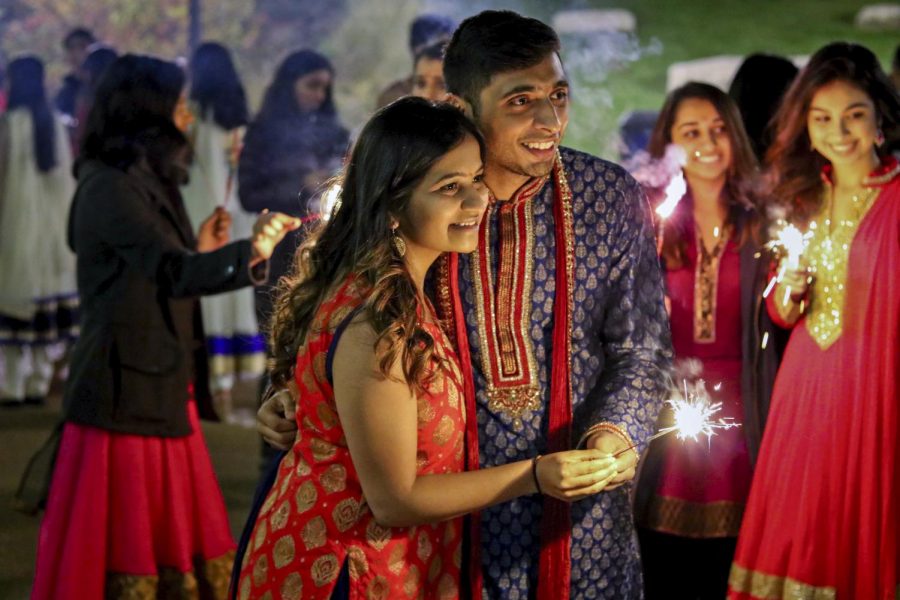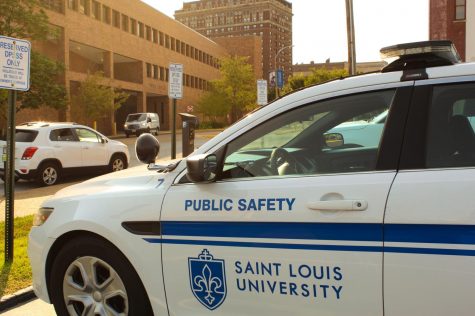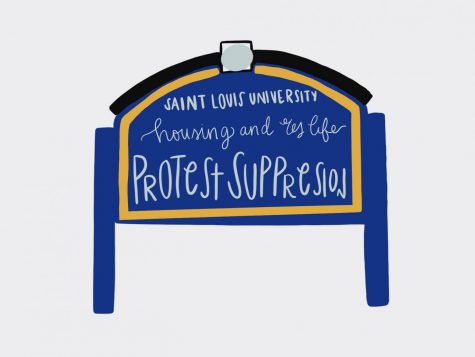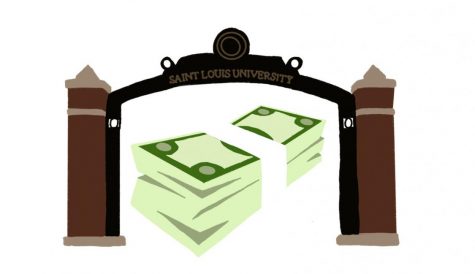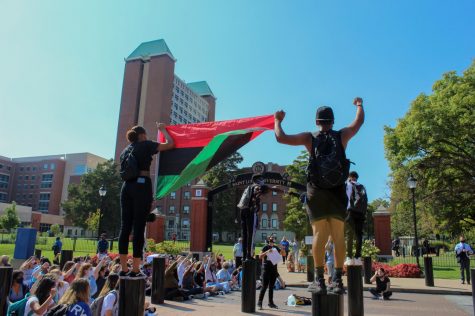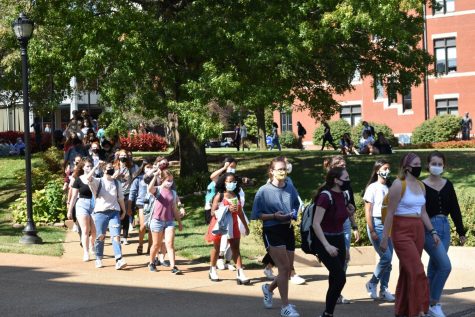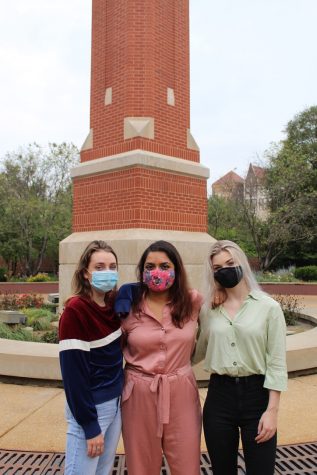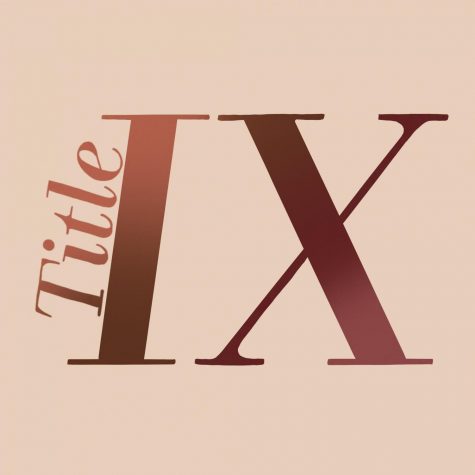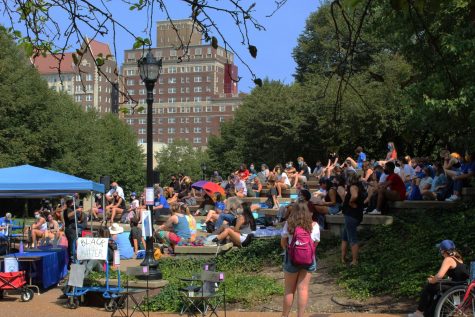SLU Lights Up In Celebration of Diwali
After celebrating with a ritual and meal in Sinquefield State Room, students headed over to the Busch Student Center light the dark night with sparklers.
For many, Jan. 1 signifies new resolutions and attitudes, but in Southeast Asia, Diwali, also Deepavali, is the day that marks new beginnings. Diwali consistently falls on the darkest day of the lunar cycle; this year being on Oct. 19. During this day, families gather clay lamps and together are able to illuminate their homes and towns to defeat the darkness. Diwali is often referred to as the festival of lights, which holds a strong significance in Indian cultures. Agni, or fire, is considered to be admirable and holy for various reasons: strong, the flame of light always points upward until the moment it extinguishes, regardless of the wind that may challenge it; and impactful, it only takes one strike of a match to completely light up a room and other candles. Similarly, one can strive to obtain the same upwardlooking, positive attitude in his or her own life, and hope to inspire others to do the same.
Throughout India, in Hindu, Jain, and Sikh faiths, Diwali celebrates a central theme: good conquering evil. However each religion and region of India marks a different historical event that illustrates this victory. North Indians celebrate Lord Rama returning back home to his kingdom of Ayodhya after 14 years of exile. During this time, Rama’s wife was captured by the demon Ravana. Rama, backed by his faithful devotee, Hanuman, and loyal brother, Laxman, traveled to Sri Lanka to rescue his beloved Sita. After engaging in battle for 10 days, Rama was able to defeat Ravana, reunite with his wife, and finally return home.
Traveling west, Lord Vishnu tricked Bali, an unjust king, to rule the underworld. In the form of a dwarf, Vishnu approached the king asking for only three steps. Whatever land he covered in those three steps would be his to keep. The king agreed without hesitation. Vishnu grew to the size of a giant and covered the heavens and earth within two steps. For his third, he stepped on Bali’s head and sent him down, freeing the people of his rule.
In Southern India, Diwali marks when Krishna defeated the demon Narkasura. Holding 16,000 queens captive, Narkasura imposed a dictatorship over his people. Krishna challenged him to battle and was able to defeat him. Doing so, Krishna rescued all 16,000 queens and took them into his name, allowing them to continue to exist in society without being shunned.
According to National Geographic, followers of Jainism and Sikhism also observe Diwali celebrations. At this time, followers of Jain faith celebrate the freedom of Lord Mahavir from the cycle of reincarnation, which occurred in 527 B.C.E. Lord Mahavir was a significant character that preached many principles essential to the ideal life, such as ahimsa, or nonviolence.
In the Sikh faith, devotees remember Guru Hargobind Ji, the sixth of the 10 gurus, who was finally freed after being unjustly imprisoned.
Regardless of faith, the celebration of Deepavali focuses on family units and the concept of home. During this time, families look to forget their troubles inside the home and out. Individuals work to become better people in order to obtain a closer relationship with God. Together, brothers, sisters, aunts and uncles decorate the home, lining it with diya lamps, rangoli and idols of God. As a unit, they create a welcoming atmosphere for God to come and bless the home.
During Diwali celebrations, not all Saint Louis University students had the opportunity to return home. SLU’s very own Hindu Student Community hosted its own Diwali Puja on Oct. 29 as a way of creating a home atmosphere to celebrate the holidays together as a community.
Held in the Sinquefield Stateroom of Dubourg Hall, HSC Executive Board and Diwali Committee arrived seven hours prior to the event armed and ready to prepare. Through a combined effort, the room transformed, with an altar for God, a photo booth, a welcome table, and a resolution-writing station for attendees to share their goals for the new year with one another. At the event, over 130 people of different faiths performed a prayer for Goddess Laxmi with the guidance of a priest. Followed by a traditional Indian meal and sweets, the attendees headed to the Amphitheatre at Busch Student Center to light sparklers in celebration.
Deepavali is not only a traditional holiday but also a diverse one that, with its foundational themes, is celebrated in a unique way by different faiths. This year at SLU, students were able to come and celebrate a rich culture at Diwali Puja, a community illuminated together.
Your donation will support the student journalists of Saint Louis University. Your contribution will help us cover our annual website hosting costs.


